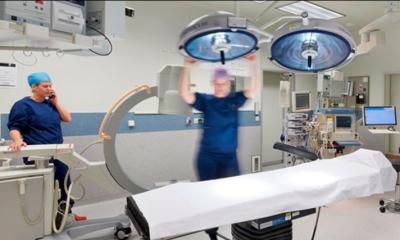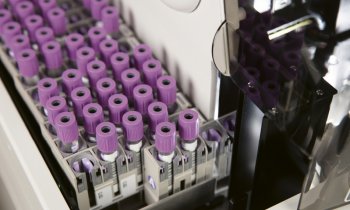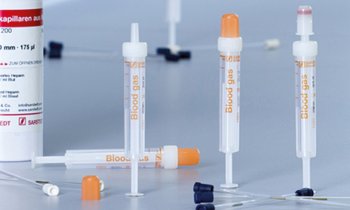
Image source: Lund University; photo: Åsa Hansdotter
News • Mapping prevalence across European hospitals
Sepsis: suprisingly common, underdiagnosed, and deadly
A research team at Lund University in Sweden has found that more than 4% of all hospital admissions in southern Sweden are associated with sepsis. It is a significantly underdiagnosed condition that can be likened to an epidemic. Now the European Sepsis Alliance has assigned the researchers with mapping the prevalence of sepsis in the rest of Europe.
In 2016, the research team conducted an initial study in southern Sweden (Skåne) where they revealed that sepsis is much more common than previously believed. The incidence turned out to be 750 adults per 100,000 individuals. In the latest study in the same region, now published in the journal JAMA Network Open, the results showed that more than 4% of all hospitalizations involved the patient suffering from sepsis, and 20% of all sepsis patients died within three months.
This makes sepsis as common as cancer with similar negative long-term consequences, and as deadly as an acute myocardial infarction
Adam Linder
“This makes sepsis as common as cancer with similar negative long-term consequences, and as deadly as an acute myocardial infarction. Among sepsis survivors, three-quarters also experience long-term complications such as heart attacks, kidney problems, and cognitive difficulties”, says Adam Linder, sepsis researcher and associate professor at the Department of infection medicine at Lund University, as well as a senior physician at Skåne University Hospital.
The European Sepsis Alliance has assigned the researchers with assessing how common sepsis is in the rest of Europe. Given the differing healthcare systems across countries, it wasn't immediately clear how they should proceed to obtain accurate figures. Consequently, the researchers conducted a pilot study southern Sweden to determine if their methods were applicable to other European hospitals.
“Doctors classify patients using diagnostic codes. Since sepsis is a secondary diagnosis resulting from an infection, the condition is significantly underdiagnosed, as the primary disease often dictates the diagnostic code. This makes it challenging to find a way to accurately determine the number of sepsis cases”, says Lisa Mellhammar, sepsis researcher at Lund University and assistant senior physician at Skåne University Hospital.
In the study, it was revealed that 7,500 patients in Skåne were associated with sepsis in 2019. During the pandemic, the incidence increased to 6%. However, even without Covid-19, the researchers believe that sepsis should be viewed as an epidemic.
The aim is to use the publication to influence the EU to establish a common surveillance system for sepsis. The team are in contact with authorities and researchers from around thirty European countries and hope that the research project can secure sufficient funding to start soon. There is no indication that the number of sepsis cases would be lower in other parts of Europe than in Sweden. In Swedish hospitals, only two percent of all sepsis patients are antibiotic-resistant, and the researchers speculate that the proportion of resistant cases is higher in many other European countries.
“Although sepsis care has improved in recent years, we need to enhance our diagnostic methods to identify patients earlier and develop alternative treatment methods beyond antibiotics to avoid resistance. Increasing awareness about sepsis among the public and decision-makers is crucial to ensure that resources are allocated appropriately", concludes Adam Linder.
Source: Lund University
04.09.2023











